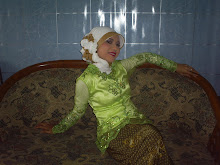What are Anxiety Disorders?
Anxiety is a normal reaction to stress. It helps one deal with a tense situation in the office, study harder for an exam, keep focused on an important speech. In general, it helps one cope. But when anxiety becomes an excessive, irrational dread of everyday situations, it has become a disabling disorder. Anxiety Disorders affect about 40 million American adults age 18 years and older (about 18%) in a given year,1 causing them to be filled with fearfulness and uncertainty. Unlike the relatively mild, brief anxiety caused by a stressful event (such as speaking in public or a first date), anxiety disorders last at least 6 months and can get worse if they are not treated. Anxiety disorders commonly occur along with other mental or physical illnesses, including alcohol or substance abuse, which may mask anxiety symptoms or make them worse. In some cases, these other illnesses need to be treated before a person will respond to treatment for the anxiety disorder.
Effective therapies for anxiety disorders are available, and research is uncovering new treatments that can help most people with anxiety disorders lead productive, fulfilling lives. If you think you have an anxiety disorder, you should seek information and treatment right away.
This booklet will
• describe the symptoms of anxiety disorders,
• explain the role of research in understanding the causes of these conditions,
• describe effective treatments,
• help you learn how to obtain treatment and work with a doctor or therapist, and
• suggest ways to make treatment more effective.
The following anxiety disorders are discussed in this brochure:
• panic disorder,
• obsessive-compulsive disorder (OCD),
• post-traumatic stress disorder (PTSD),
• social phobia (or social anxiety disorder),
• specific phobias, and
• generalized anxiety disorder (GAD).
Each anxiety disorder has different symptoms, but all the symptoms cluster around excessive, irrational fear and dread.
Five major types of anxiety disorders are:
• Generalized Anxiety Disorder
• Obsessive-Compulsive Disorder (OCD)
• Panic Disorder
• Post-Traumatic Stress Disorder (PTSD)
• Social Phobia (or Social Anxiety Disorder)
Treatment
Effective treatments for anxiety disorders are available, and research is yielding new, improved therapies that can help most people with anxiety disorders lead productive, fulfilling lives.
Getting Help: Locate Services
If unsure where to go for help, talk to someone you trust who has experience in mental health—for example, a doctor, nurse, social worker, or religious counselor. Ask their advice on where to seek treatment. If there is a university nearby, its departments of psychiatry or psychology may offer private and/or sliding-scale fee clinic treatment options. Otherwise, check the Yellow Pages under "mental health," "health," "social services," "crisis intervention services," "hotlines," "hospitals," or "physicians" for phone numbers and addresses. In times of crisis, the emergency room doctor at a hospital may be able to provide temporary help for a mental health problem, and will be able to tell you where and how to get further help.
Listed below are the types of people and places that will make a referral to, or provide, diagnostic and treatment services.
• Mental health specialists, such as psychiatrists, psychologists, social workers, or mental health counselors
• Religious leaders/counselors
• Health maintenance organizations
• Community mental health centers
• Hospital psychiatry departments and outpatient clinics
• University- or medical school-affiliated programs
• State hospital outpatient clinics
• Social service agencies
• Private clinics and facilities
• Employee assistance programs
• Local medical and/or psychiatric societies. /NIMH
Tuesday, December 23, 2008
ANXIETY DISORDERS
Wednesday, December 10, 2008
Watch out for Cyber Bullying
Violence can happen in form of and through any mass media. Parents had better take care, don’t let what they love much is to be a victim of violence for cyber bullying.
A research which was done by a researcher from University of York, England, found 15% from 11.000 teenagers ever received a message of violence. They also admitted that they ever received a profane message through short message service and e-mail. As AFP released, they who became a victim of violence for cyber bullying were dominated by female teenagers.
Nathalie Noret, one of the researcher said that cyber bullying is an indirect violence. “this is important to be understood because this during, people just know that violence can happen physically or when they meet directly,” she said.
Further she said that teachers and parents need to realize, a handphone and computer do not only function as a communicative tool. But they are also used as mass media to do violence toward children when they are at home.
Last February, the MSN Computer Company found one of the 10 teenagers in England has been a victim for cyber bullying. A half of 500 teenagers who were researched felt that their parent did not realize that they could be a victim of violence from Internet.
John Carr, the chief of Children’s Charities’ Coalition for Internet Safety said that this violence could cause teenagers were afraid to have relation with other people and chose if they wanted to make relation with no one. Even, they could feel so traumatic that they would be reluctant to use them as a communicative tool.
This research may be able to be a warning to parents so they will ask about the content of the message and e-mail to children. Thus, parents can give advice to them phsycologically./Immer
The Brain Food Supplies
We must consume food in our daily life. If we do not eat food in a day, we will be tired to do something. Even we tend to lie in our bed room because we are not strong or do not have an energy of doing something. In the sense of our body needs to be filled by food to make it strong.
Reading book for our brain is like the case that I have written above. What is really the relation between reading book and consuming food for our body? Here, book is like food and our body is as a brain. Reading book is like giving food to our body that I have mentioned. If we do not give food for our brain, our brain will be difficult to result ideas. It means, our brain will be very weak to think. It is the same case when we do not give food for our body, our body will not be strong to do something. Our body is to do something and our brain is to think but both need food.
We will take food that we like to eat. We will not eat fried chicken if we just want to eat burnt chicken. In reading book, we will feel the same case. We will not read an economic book if we just want to read a self-development book.
What we eat will effect our health. What we read will also effect our own way to think. If we just consume a kind of food, our health does not grow well. The same thing, if we read a kind of book, for example, we just read a computer book, our brain just knows the knowledge about computer and we will be difficult to know the knowledge about social, economic, self-development, philosophy, and so forth.
When we eat more than a kind of food, our health will grow well. This is like with our brain. When our brain consumes by reading many kinds of books, such as social, economic, self-development, philosophy, etc, our brain will grow well and ideas of creating something will be easier. It means, we need to make balance of reading books.
Thus, stay our healthy by consuming food regularly. Giving food to our body will make us strong to do what we will do. Giving food to our brain by reading books will make our brain grows well. Our brain will create bright thoughts and ideas when it is kept by reading books regularly./Wr, Immer






